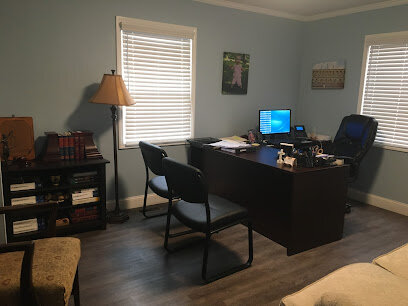Best Housing, Construction & Development Lawyers in Arkansas
Share your needs with us, get contacted by law firms.
Free. Takes 2 min.
Free Guide to Hiring a Real Estate Lawyer
Or refine your search by selecting a city:
List of the best lawyers in Arkansas, United States
About Housing, Construction & Development Law in Arkansas, United States
Housing, construction, and development law in Arkansas covers the legal rules and regulations that govern how homes, apartment buildings, and commercial properties are built, bought, sold, rented, and maintained. These areas of law address the relationships between property owners, renters, developers, builders, contractors, government bodies, and financial institutions. In Arkansas, housing and construction laws ensure that buildings are safe, zoning guidelines are followed, contracts are honored, and everyone's rights are respected during property development or rental activities.
Why You May Need a Lawyer
People may require a lawyer in matters related to housing, construction, and development in Arkansas for several reasons. Legal assistance is often needed when dealing with disputes between landlords and tenants, disagreements over construction contracts, or problems regarding zoning and land use. Lawyers can help resolve issues about property boundaries, code compliance, faulty construction, delay in projects, liens placed by contractors for unpaid work, and even cases of eviction or foreclosure. Whether you are a homeowner, tenant, contractor, developer or investor, a legal expert ensures that your interests are protected, your transactions are lawful, and any claims made against or by you are properly addressed.
Local Laws Overview
Arkansas laws affecting housing, construction, and development are shaped both by state statutes and local ordinances. Key areas include the Arkansas Residential Landlord-Tenant Act, building and zoning codes adopted by local municipalities, and state licensing requirements for contractors. The state has its own rules for eviction, application of security deposits, lead-based paint disclosures, and habitability standards. Construction projects must comply with building permits, inspections, and safety codes. Development projects are subject to planning, zoning, and public hearing requirements to ensure they fit within the local community’s comprehensive plan. Arkansas also follows "mechanic’s lien" laws that allow contractors and suppliers to file a lien if they are not paid for improvements on a property.
Frequently Asked Questions
What rights do tenants have in Arkansas?
Tenants in Arkansas have the right to a livable rental unit, protection from illegal eviction, and privacy. However, Arkansas does not require landlords to make all repairs unless it involves compliance with building or health codes.
How are security deposits managed in Arkansas?
For landlords who own five or more properties, Arkansas law limits security deposits to two months’ rent. Deposits must be returned within 60 days after the rental ends, minus any lawful deductions.
What steps are required to evict a tenant?
A landlord must provide a written notice stating the reason for eviction. Reasons can include non-payment of rent or violation of lease terms. If the tenant does not leave, the landlord must file for eviction through the local court.
What is a mechanic’s lien and how does it affect homeowners?
A mechanic’s lien is a legal claim by contractors or suppliers who have not been paid for their work or materials. This lien can be placed on a property and may prevent its sale until the debt is settled.
Do I need a permit for home improvements?
Most major construction or remodeling projects in Arkansas require permits from local building departments. This includes building new structures, adding rooms, or major electrical and plumbing work.
What legal requirements must contractors meet in Arkansas?
Depending on the job’s value, contractors may need to be licensed by the state. For residential projects costing over $2,000, a contractor's license is typically required through the Arkansas Contractors Licensing Board.
How do I resolve disputes with contractors or builders?
Try to resolve the issue directly with the contractor first. If unsuccessful, Arkansas offers mediation through consumer protection agencies. You may also file a complaint with the Contractors Licensing Board or pursue legal action.
What protections are in place for buyers of newly built homes?
Home buyers are protected by warranties implied by law and in some cases express warranties provided by the builder. These cover structural integrity and compliance with building codes for a set period.
Are there affordable housing programs in Arkansas?
Yes, there are several state and federal programs aimed at helping low-income individuals and families find affordable housing, such as assistance through the Arkansas Development Finance Authority.
What is zoning and why is it important?
Zoning is the regulation of land use by local government. It determines how property can be used, such as for residential, commercial, or industrial purposes. Zoning laws help ensure developments are appropriate for their location and protect property values.
Additional Resources
If you need more information or help, the following resources can be valuable:
- Arkansas Department of Health - Permitting and inspections for construction projects
- Arkansas Contractors Licensing Board - Licensing and complaint processes for contractors
- Arkansas Attorney General's Office - Consumer protection and tenant-landlord resources
- Arkansas Development Finance Authority - Affordable housing programs and assistance
- Local city or county planning and zoning offices - Information on zoning, permits, and building codes
- Arkansas Legal Services - Free or low-cost legal help for qualifying individuals
Next Steps
If you need legal assistance regarding housing, construction, or development in Arkansas, start by identifying your specific problem. Gather all relevant documents such as contracts, communications, and permits. You can contact a local attorney experienced in real estate or construction law for professional advice. If you meet income guidelines, consider applying for help through Arkansas Legal Services. For complaints against contractors, reach out to the Arkansas Contractors Licensing Board. Finally, check with your local government office for information about permits and zoning. Acting early can help prevent minor issues from becoming costly legal disputes.
Lawzana helps you find the best lawyers and law firms in Arkansas through a curated and pre-screened list of qualified legal professionals. Our platform offers rankings and detailed profiles of attorneys and law firms, allowing you to compare based on practice areas, including Housing, Construction & Development, experience, and client feedback.
Each profile includes a description of the firm's areas of practice, client reviews, team members and partners, year of establishment, spoken languages, office locations, contact information, social media presence, and any published articles or resources. Most firms on our platform speak English and are experienced in both local and international legal matters.
Get a quote from top-rated law firms in Arkansas, United States — quickly, securely, and without unnecessary hassle.
Disclaimer:
The information provided on this page is for general informational purposes only and does not constitute legal advice. While we strive to ensure the accuracy and relevance of the content, legal information may change over time, and interpretations of the law can vary. You should always consult with a qualified legal professional for advice specific to your situation.
We disclaim all liability for actions taken or not taken based on the content of this page. If you believe any information is incorrect or outdated, please contact us, and we will review and update it where appropriate.
Browse housing, construction & development law firms by city in Arkansas
Refine your search by selecting a city.
















